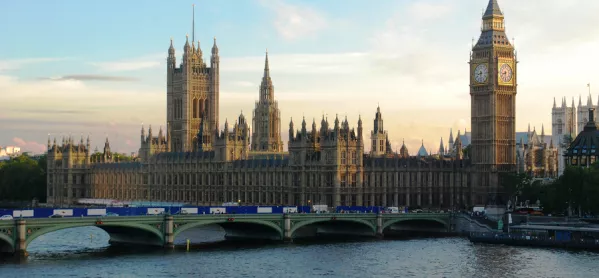British Values. Brexit. Donald Trump. There has clearly never been a more important time to engage young people with politics, government and democracy.
14-20 November is Parliament Week, but there are ways to get your students engaged in learning about democracy at any time of the year.
-
Arrange a visit to the Houses of Parliament
This will typically include a full tour of the House of Lords, House of Commons and Westminster Abbey, plus a workshop - and, subject to availability, a guest appearance from your school’s local MP. Don’t panic if you can’t travel to London. Parliament’s Education Service also offers a range of free outreach opportunities, including visits from its own officers, MPs and Lords.
- Skype the Speaker
The Speaker of the House of Commons, Rt Hon John Bercow MP, visits schools, colleges and universities to promote Parliament’s work and encourage public engagement. Where a visit is not possible, he offers live discussions via Skype. For more information, email educationoutreach@parliament.uk.
- Invite your local MP or councillor
Members of Parliament are very busy people, but their time isn’t exclusively spent in Whitehall. A proportion of their time (usually a Friday) is spent in their own constituencies; at this time you’ll stand a better chance of arranging a visit to your school. While it might not sound so impressive, a visiting councillor can do just as good a job of talking to students about politics.
- Promote Youth Parliament
The UK Youth Parliament offers 11-18 year-olds the opportunity to make their voices heard. Its 369 members are elected from all regions in the country. They organise campaigns and events in a bid to influence decision-makers around the issues which matter to people of their age.
- Headteacher’s questions
Suggest that your headteacher takes part in a ‘Headteacher’s Questions’ assembly, in a similar style to Prime Minister’s Questions. Show the children footage of this taking place (Wednesdays at 12:00 via the BBC or Parliament website) before they get the chance to question the boss about how their school is run. Don’t forget to employ a neutral member of staff who does a good “Order!” to act as the Speaker.
- Look to the future
Parliament Week takes place every year. If schools register their planned events ahead of time, they will receive free promotional material and a few goodies.
You can also plan a CPD session for staff. Parliament’s Education Service offers a wide range of CPD opportunities. These range from seminars on citizenship, Government and politics to fully immersive, residential Teacher’s Institute courses - all of which are free of charge.
- Don’t forget the basics
A good place to start with building engagement is to get a debating society up and running. Secondary schools are more likely to already have one in place, but there’s no reason why primary children couldn’t take part in debating too. You can also ensure that your school council has a prominent role in school. Parliament Education Service has plenty of free teaching resources to help with this, or with discussing politics in the classroom.
Ben Culverhouse (@ben_culverhouse) is a Teacher’s Institute graduate. He teaches at High Down Junior School, Portishead.
You can follow the 2016 Parliament Week using the hashtag #UKPW16.
Want to keep up with the latest education news and opinion? Follow TES on Twitter and like TES on Facebook

